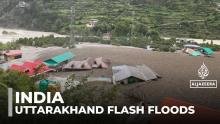Narendra Modi-Arun Jaitley can Learn from Manmohan Singh
28 Sep 2017 ( IBTN News Bureau )
In the year 2008, when there was a financial catastrophe all over the world. Legends like Merrill Lynch and Lehman Brothers were collapsing. There were reports of touching the stock markets in every corner.
There was something similar in India too. Lakhs of millions of investors were disappearing every day on the Dalal Street, the pink slip was getting torn apart and the new jobs seemed to have a famine.
When it seemed that the Indian economy would be devastated, then the government thoughtfulness started taking care of the situation. The first major benefit of a population of more than a billion is to show, when domestic consumption took the weak economy on its shoulders.
Sales in the rural areas remained strong, there was some impact on big businesses, but they did not show any impact on small industries, but how did all this happen?
Yashwant Sinha, finance minister in the Atal government, said, "Private investment is falling. Industrial production is shrinking. Agriculture is in crisis, construction and other service sectors are slowing, exports are in difficult, Notes ban proved to be unsuccessful and the GST implemented in the absence of submergence has robbed many, snatched employment. Do not see new opportunities. The quarterly growth rate is slowing down."
All of us are watching that the Notes ban was not the benefit of the Modi government's dream.
If indeed we are moving towards economic slowdown, then what can Prime Minister Narendra Modi and Finance Minister Arun Jaitley do to deal with the current situation? Can anything be learned from the policies of then Prime Minister Manmohan Singh, Pranab Mukherjee and P Chidambaram who took India out of crisis in 2008?
Economic knowledgeable Paranjay Guha Thakurta commented on Yashwant Sinha's article saying that what Yashwant Sinha has said is true.
He said, "When the economic slowdown came in the year 2008, Pranab Mukherjee and P Chidambaram in the UPA government suggested that we have to spend more money. This increased the financial losses. The coming time will tell whether the Modi government and his finance minister adopt this route or not."
The experts believe that when an economic crisis comes, the government tries to increase its expenditure in every country as there is a problem of unemployment and investment at that time. If the private sector does not invest, then the government has to invest.
He said, "In the one and a half years elections are coming. There is not much time remaining. Perhaps the government will do that at that time. When this happens, the fiscal deficit increases and its impression is seen on inflation."
The common man is troubled by the prices of petrol this time, but this can be a beneficial deal for the government.
Thakurta said, "The government has increased the revenue by increasing the price of petrol, so can also be spent on it. Time will tell what the government's strategy is for the advancement of the economy. Because at this time his condition is very bad."
He said that the opponents of the government were already saying this before. Now when BJP senior leader Yashwant Sinha have started to say this, people have started to see it. Everyone knew that the situation is going on?
According to Thakurta, a new figure has come from the Labour Bureau which states that unemployment has increased so much for the first time in independent India.
In the year 2008 the government had increased domestic consumption and spent money for it. Increase their government deficit. Different programs were started Which is beneficial, will it happen again?
He said, "At that time it was said that if the government deficit is increased then its impact will be on inflation, but it has been decided that if this is the case, but the government has to increase its expenditure. Perhaps the same story will be repeated. In the coming days, Modi government can do the same."
Other experts also believe that the government will have to instill confidence in business immediately. The Wire's Senior editor and financial journalist MK Venu said that the financial crisis of 2008 was global. Its effect was everywhere. Also in India because if there is an impact on global business and investment, then it also affects India as it is an important part of it. We also got pressure here. The financial market dropped, the stock market rolled up, the realty sector weakened, there was a lot of impact on the business.
He said, "But the policy adopted in India at that time had two important parts. First, financial gear was imposed. The government increased its expenditure so that the level of consumption could be maintained. And second, the Reserve Bank has changed its monetary policy. He was given relief through the cheap money was provided to the market.
Venu said, "Because of these policies, the Indian economy has remained steady and it has limited impact of recession worldwide. The recession came in 2008, but India handled itself till 2009-10 and 2010-11. "
He said that there was a long impact of that recession, the growth rate also dropped, but not so much as we are now seeing. When the Modi government assumed power, then the finance minister also said that India is in a very good position. Oil and metal prices were falling, which made India very profitable. Current Account Deficit (i.e. the difference between exports and imports) was low.
In a way, the Modi government could not take advantage of the good conditions. In response to this, he said that instead of stabilizing the economy, they did some such things in the name of structural reforms which did not benefit.
As the Notes ban was made in the name of dealing with black money, GST was also implemented in a hurry. In such a situation, the recovery which was gradually taking place, all these things came before they were completely recovered. This hurt the economy - especially the small industries. It is also facing the problem.
On what Modi and Jaitley can learn from the policies of the Manmohan Singh government, Venu said, "One, RBI interest rates are still high. More money can be provided to banks. This can make a difference. But the problem is that the condition of the banks is also poor. The companies facing the previous recession are unable to return their money, which has added to their crisis.
"50 companies are such that they are not able to return Rs 10 lakh crore. In such a situation, it is very important to give money to the banks so that they can give money ahead. During the last eight-month you will see that the banks are not paying money. After the notes ban, seven to eight months have passed since the banks are not lending. This is a big problem. "
He said that the government has the statistics of the eight sectors in the organized sector, there were 10 lakhs additional jobs till 2011-12, it has fallen to 1.5 lakhs. Leave the matter of the unorganized sector which has suffered a lot. The government will have to rejuvenate the private industries. This is a cycle. If the bank will not give money, businesses will not trust, how will it be? The government will have to increase the business confidence, especially the small industries.
Sales of small industries have declined by 58% between January and March this year. If there is such a drop in sales then what will be the employment situation?
The problem of the present government is that it is cheating into the understanding of the dynamics of the Indian economy. The notes ban was aimed at black money of big businessmen, but the opposite happened.
Venu said, "Small businessmen used to work in cash, they got hurt and their share in industrial growth was about 40 percent. It could not be resolved. Look at the farmers' condition. Rabi crops have been good and production of pulses also increased. But when the farmers went to the market, 50 percent was getting lower. The reason for this is that the cash was more."
"The Economic Advisor of the RSS had justified the Notes ban. But he also said that informal businesses work in the economy of India, they can not be captured by throat and can not be digitized. This can be done by slowing down the market processes. "
(Click here for Android APP of IBTN. You can follow us on facebook and Twitter)
Share This News
About sharing
-
 15 Nov 2025
Why did the Grand Alliance suffer a crushing defeat in the 2025 Bihar Assembly elections?: Analysis
15 Nov 2025
Why did the Grand Alliance suffer a crushing defeat in the 2025 Bihar Assembly elections?: Analysis
Why did the Grand Alliance suffer a crushing defeat in the 2025 Bihar Assembly elec...
-
 12 Nov 2025
LIVE: India, Pakistan launch probes after blasts in New Delhi, Islamabad
12 Nov 2025
LIVE: India, Pakistan launch probes after blasts in New Delhi, Islamabad
LIVE: India, Pakistan launch probes after blasts in New Delhi, Islamabad
-
 11 Nov 2025
Delhi Red Fort blast live: Terrorism law invoked in India after 13 killed
11 Nov 2025
Delhi Red Fort blast live: Terrorism law invoked in India after 13 killed
Delhi Red Fort blast live: Terrorism law invoked in India after 13 killed<...
-
 05 Aug 2025
At least four dead, dozens missing as flash floods hit north India village
05 Aug 2025
At least four dead, dozens missing as flash floods hit north India village
At least four dead, dozens missing as flash floods hit north India village
-
 12 Jun 2025
Air India flight crashes in Ahmedabad with more than 240 people on board
12 Jun 2025
Air India flight crashes in Ahmedabad with more than 240 people on board
Air India flight crashes in Ahmedabad with more than 240 people on board



